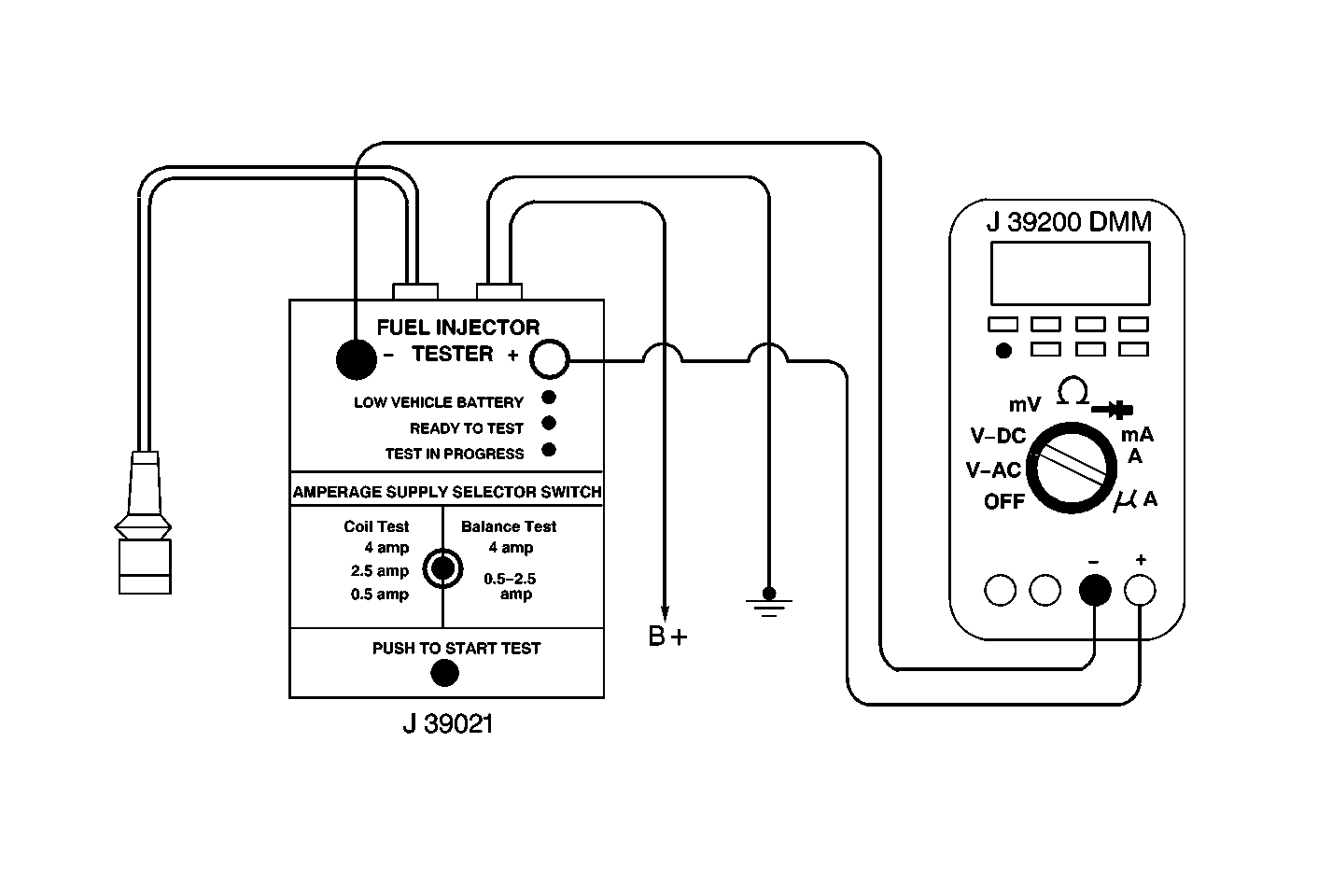| Table 1: | Example |
| Table 2: | Fuel Injector Coil Test - ECT within 10-35°C (50-95°F) |

Test Description
Caution: Wrap a shop towel around the fuel pressure connection in order to reduce the risk of fire and personal injury. The towel will absorb any fuel leakage that occurs during the connection of the fuel pressure gage. Place the towel in an approved container when the connection of the fuel pressure gage is complete.
-
The engine coolant temperature affects the ability of the fuel injector tester to detect a faulty fuel injector. If the engine coolant temperature is NOT between 10°C and 35°C (50°F and 95°F), go to Fuel Injector Coil Test Procedure - Engine Coolant Temperature Less Than 10°C (50°F) or Greater Than 35°C (95°F).
-
The first second of the voltage displayed by the DMM may be inaccurate due to the initial current surge, therefore, record the lowest voltage displayed by the DMM after the first second of the test. The voltage displayed by the DMM should be within the specified range (refer to the Example). The voltage displayed by the DMM may increase throughout the test as the fuel injector windings warm and the resistance of the fuel injector windings changes. An erratic voltage reading (large fluctuations in voltage that do not stabilize) indicates an intermittent connection within the fuel injector.
Resistance Ohms | Voltage Specification at 10°C-35°C (50°F-95°F) | |
|---|---|---|
11.4-12.6 | 5.7-6.6 | |
Fuel Injector Number | Voltage Reading | Pass/Fail |
1 | 6.3 | P |
2 | 5.9 | P |
3 | 6.2 | P |
4 | 6.1 | P |
5 | 4.8 | F |
6 | 6.0 | P |
Step | Action | Value(s) | Yes | No |
|---|---|---|---|---|
1 | Was the Powertrain On-Board Diagnostic (OBD) System Check performed? | -- | ||
Is the engine coolant temperature within the specified limits? | 10°C-35°C (50°F-95°F) | |||
Caution: Refer to Relieving Fuel Pressure Caution in the Preface section. Notice: In order to prevent flooding of a single cylinder and possible engine damage, relieve the fuel pressure before performing the fuel injector coil test procedure. Important: The Injector Selector Switch Box, and Fuel Injector Test Harness should be used in order to prevent from removing the upper intake manifold to preform the injector balance test. Important: Check the engine coolant temperature again to ensure that the correct chart is being used. Important : The voltage reading may rise during the test. Did any fuel injector have an erratic voltage reading (large fluctuations in voltage that do not stabilize) or a voltage reading outside of the specified limits? | 5.7-6.6 volts | |||
4 | Remove the upper intake manifold Refer to Intake Manifold Removal (Upper VIN M) . Is action complete? | -- | -- | |
5 | Inspect fuel injector electrical harness for connector terminal damage, shorts, opens, and grounds. Was any of the above problems found? | -- | ||
6 | Repair Wires or Terminals as necessary. Is action complete? | -- | -- | |
7 | Replace the faulty fuel injectors. Refer to Fuel Injector Replacement . Is action complete? | -- | -- |
